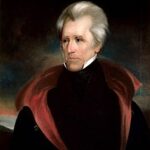Andrew Jackson revolutionized presidential veto power during his presidency from 1829 to 1837. Previous presidents used vetoes sparingly and only on constitutional grounds. Jackson broke this precedent by vetoing legislation based on policy disagreements.
The Bank Veto Decision
Jackson’s most controversial use of presidential veto power came in 1832. He vetoed the recharter of the Second Bank of the United States. Congress had approved the recharter with bipartisan support. Jackson opposed the bank on political and personal grounds, not constitutional ones. 💰 The veto message attacked wealthy elites and foreign investors. This marked a dramatic shift in executive authority.
Unprecedented Executive Action
Jackson issued twelve vetoes during his two terms in office. All previous presidents combined had used only nine vetoes. His successors followed similar patterns of expanded veto usage. ⚠️ Critics argued Jackson exceeded constitutional boundaries. They claimed he was acting more like a king than a president.
Constitutional Controversy
The Founding Fathers intended presidential veto power for constitutional protection. Jackson used it as a policy tool instead. 📊 His approach fundamentally altered the separation of powers. Congressional leaders accused him of legislative overreach through executive action.
Impact:
Jackson’s expansion of presidential veto power created lasting constitutional and political consequences. His actions transformed the executive branch’s relationship with Congress permanently.
Immediate Political Fallout
🔥 The bank veto sparked intense national debate about executive authority. Whig Party leaders condemned Jackson’s “executive tyranny” in newspapers nationwide. Henry Clay and Daniel Webster led congressional opposition to expanded presidential powers. The 1832 election became a referendum on Jackson’s use of presidential veto power. Jackson won decisively, seeming to validate his approach.
Long-term Constitutional Changes
Future presidents adopted Jackson’s model of policy-based vetoes regularly. The veto became a standard tool for advancing presidential agendas. 📉 Congressional influence over policy declined as executive power expanded. Modern presidency traces its roots to Jackson’s constitutional innovations.
Economic and Social Consequences
The bank veto triggered the Bank War and subsequent economic instability. 💰 Financial markets suffered from uncertainty about federal banking policy. State banks proliferated without federal oversight or regulation. The Panic of 1837 partially resulted from Jackson’s banking policies.
Historical Assessment
Historians remain divided on Jackson’s legacy regarding presidential veto power. Supporters argue he democratized the presidency and challenged elite control. Critics contend he violated constitutional principles and separation of powers. His precedent permanently altered American governance and executive authority.
